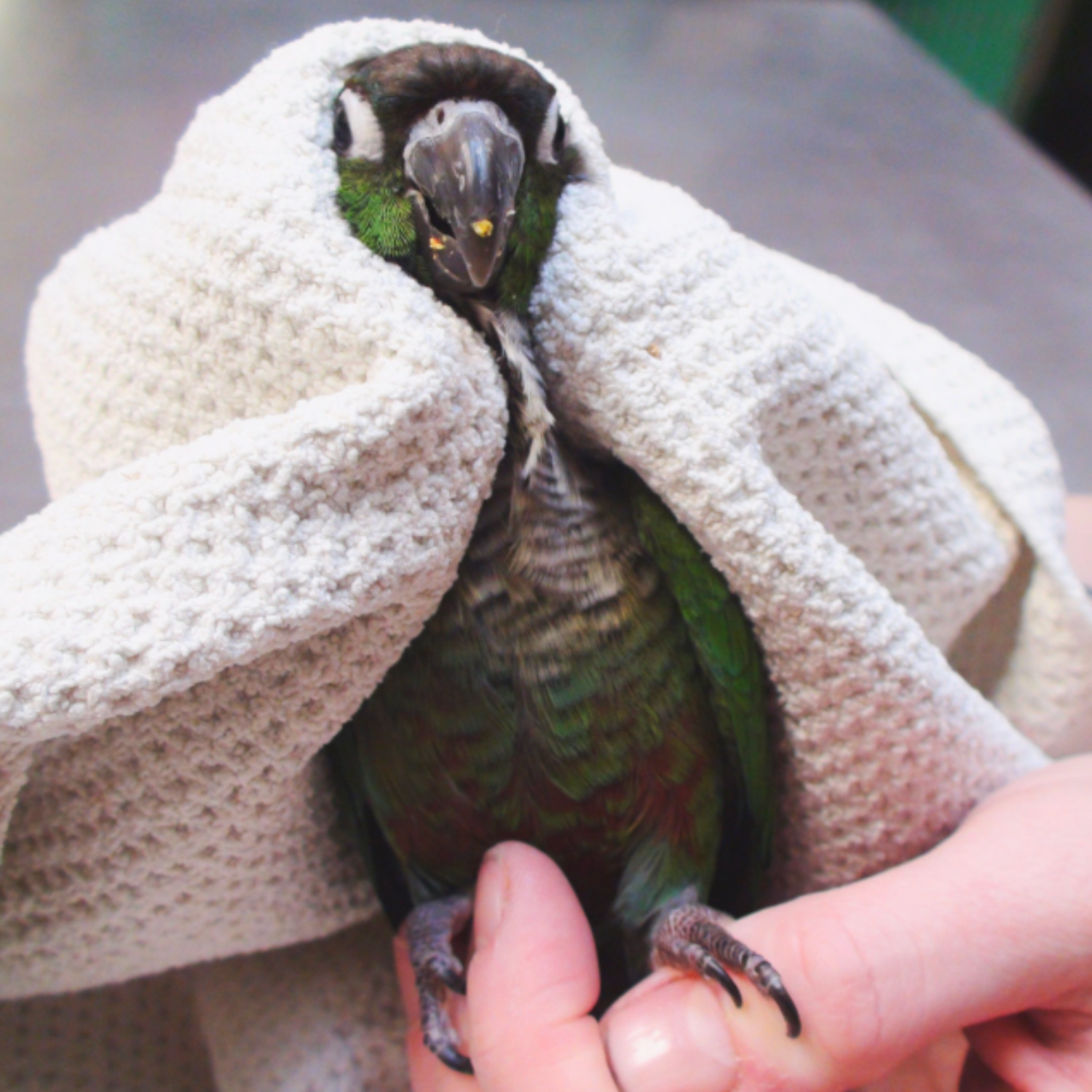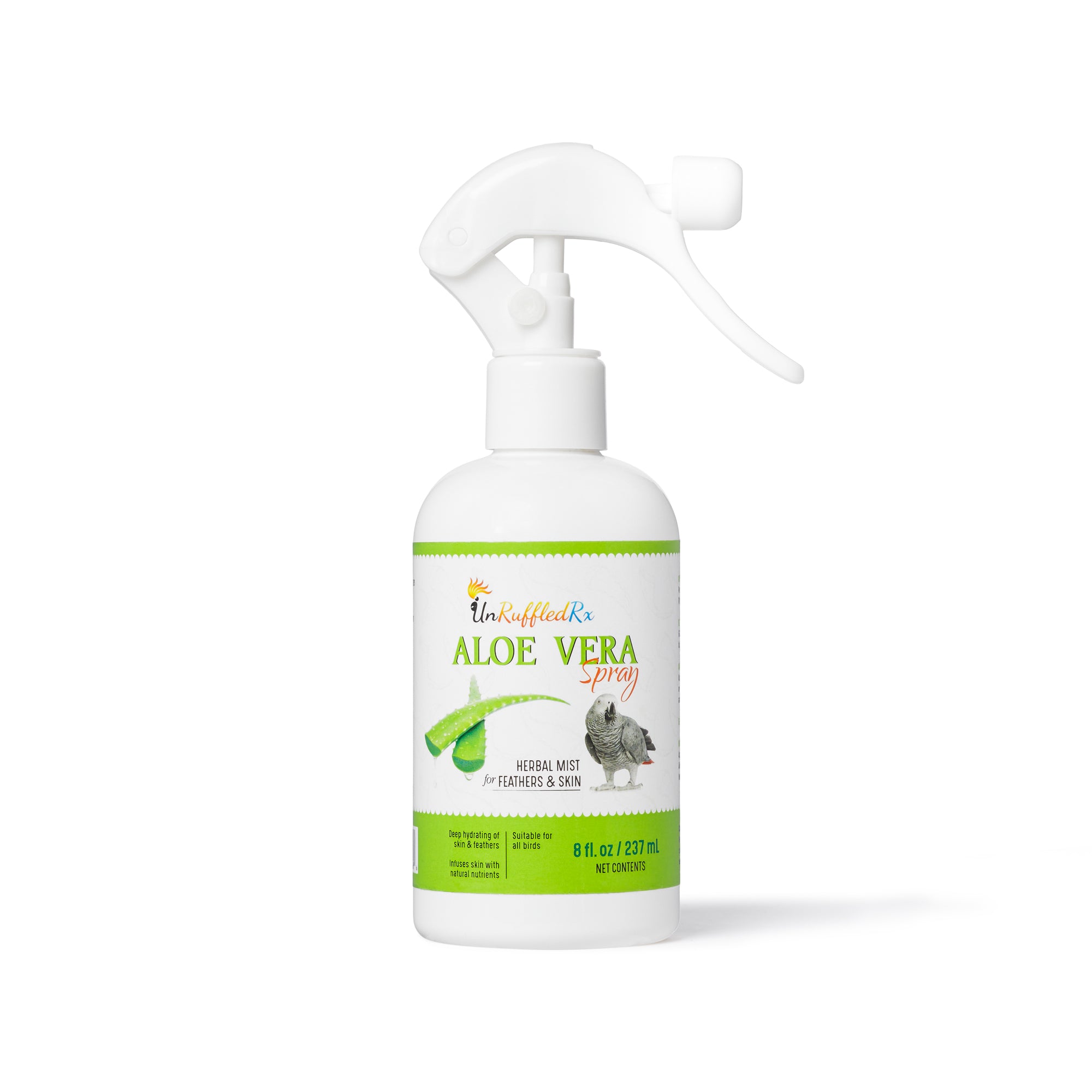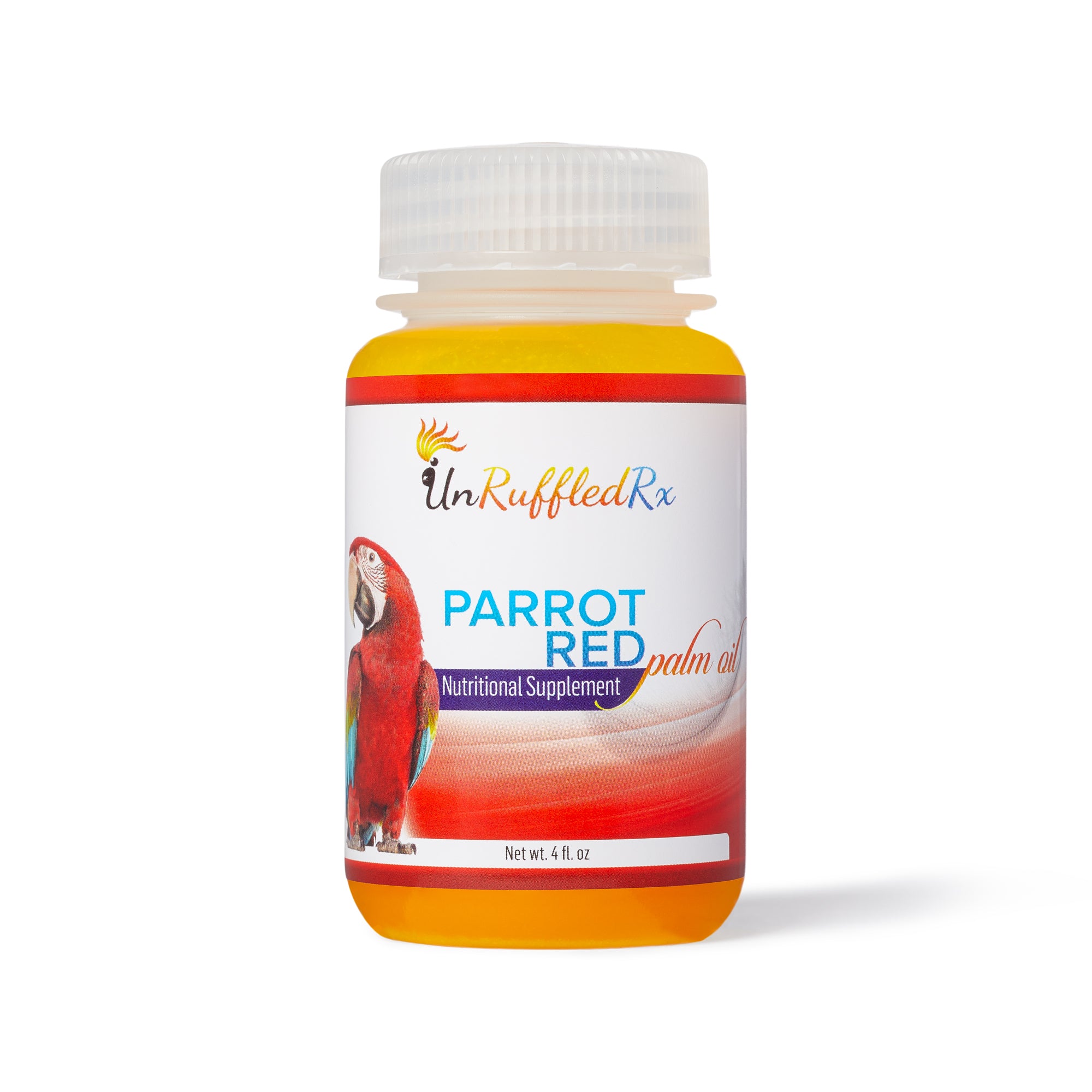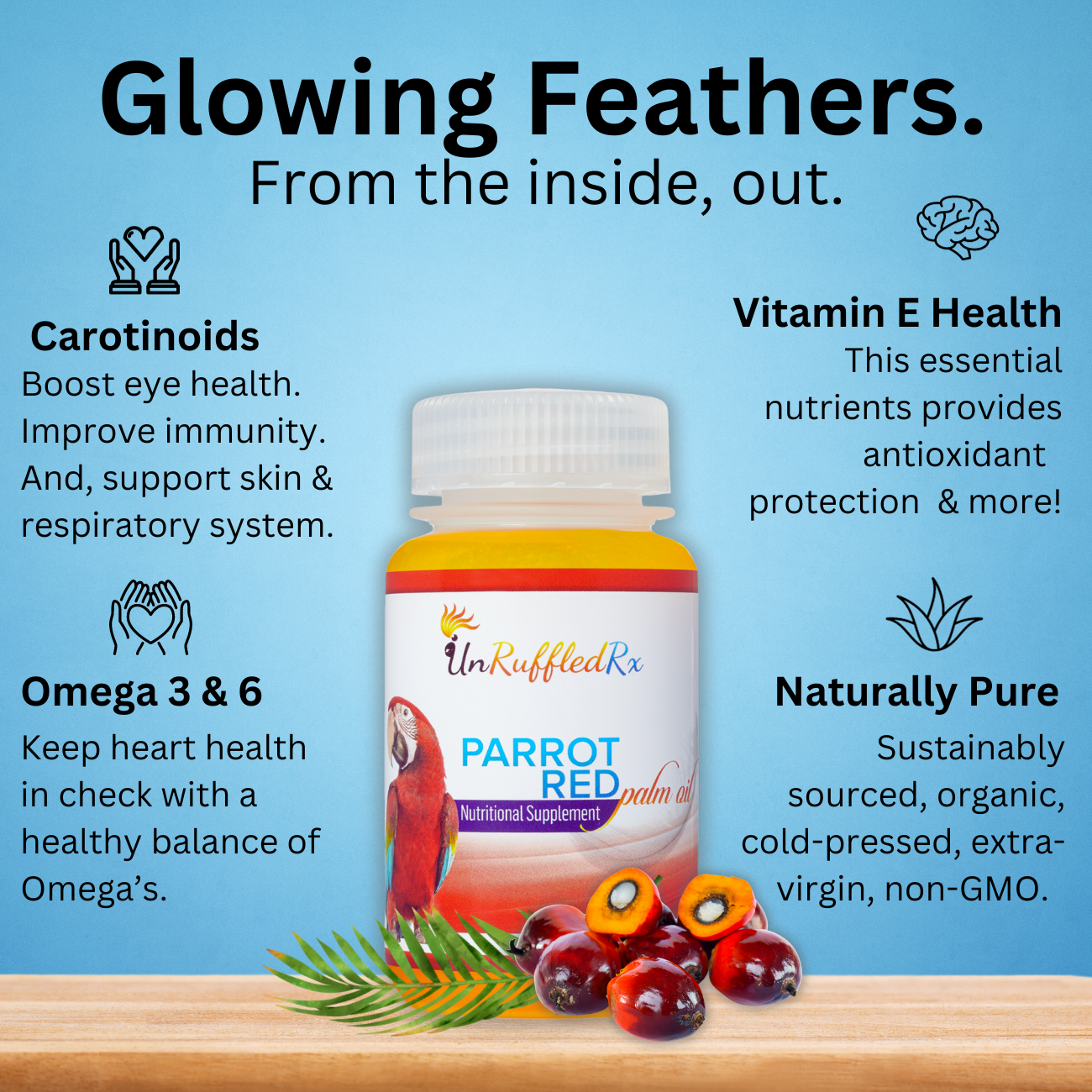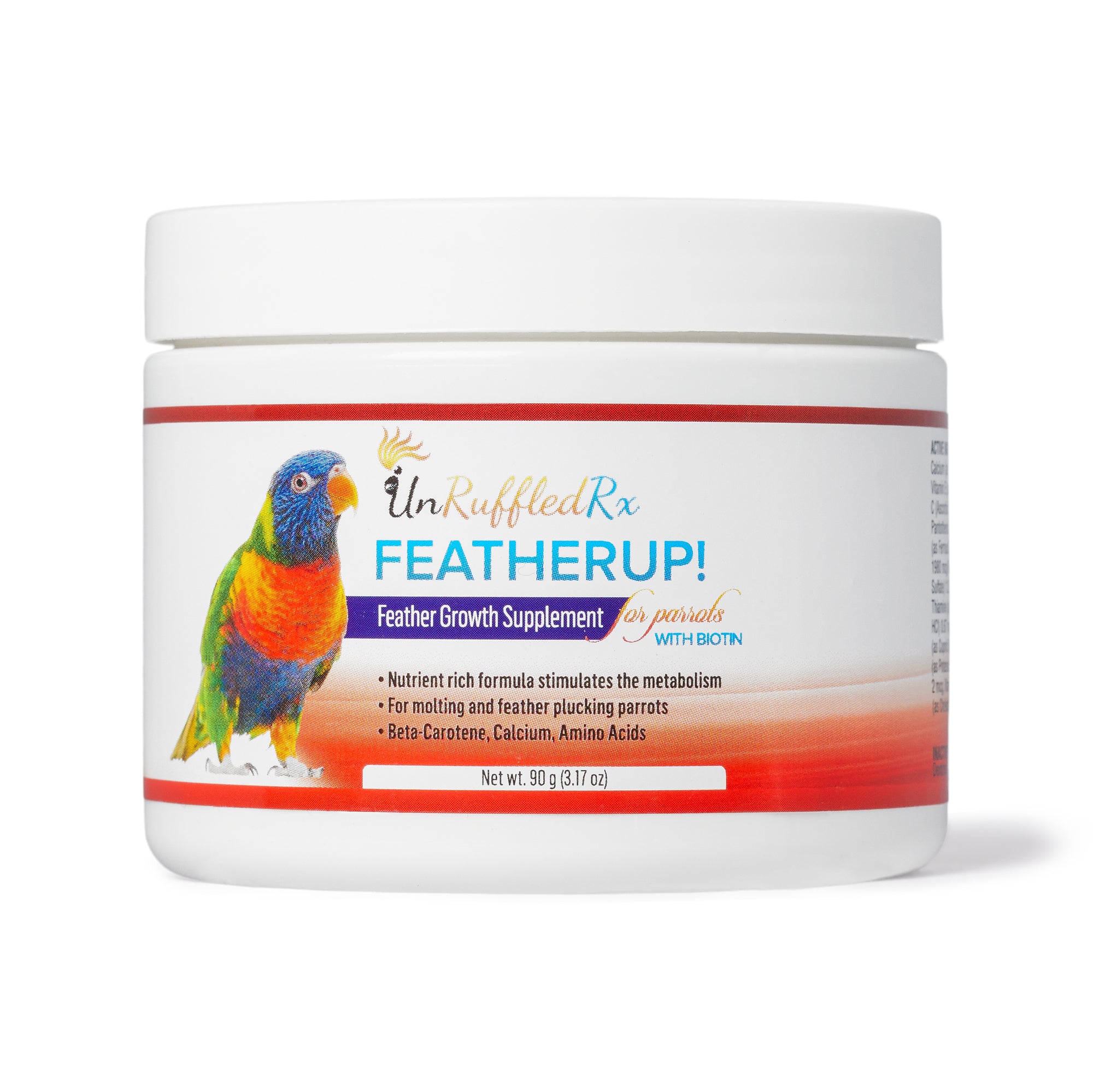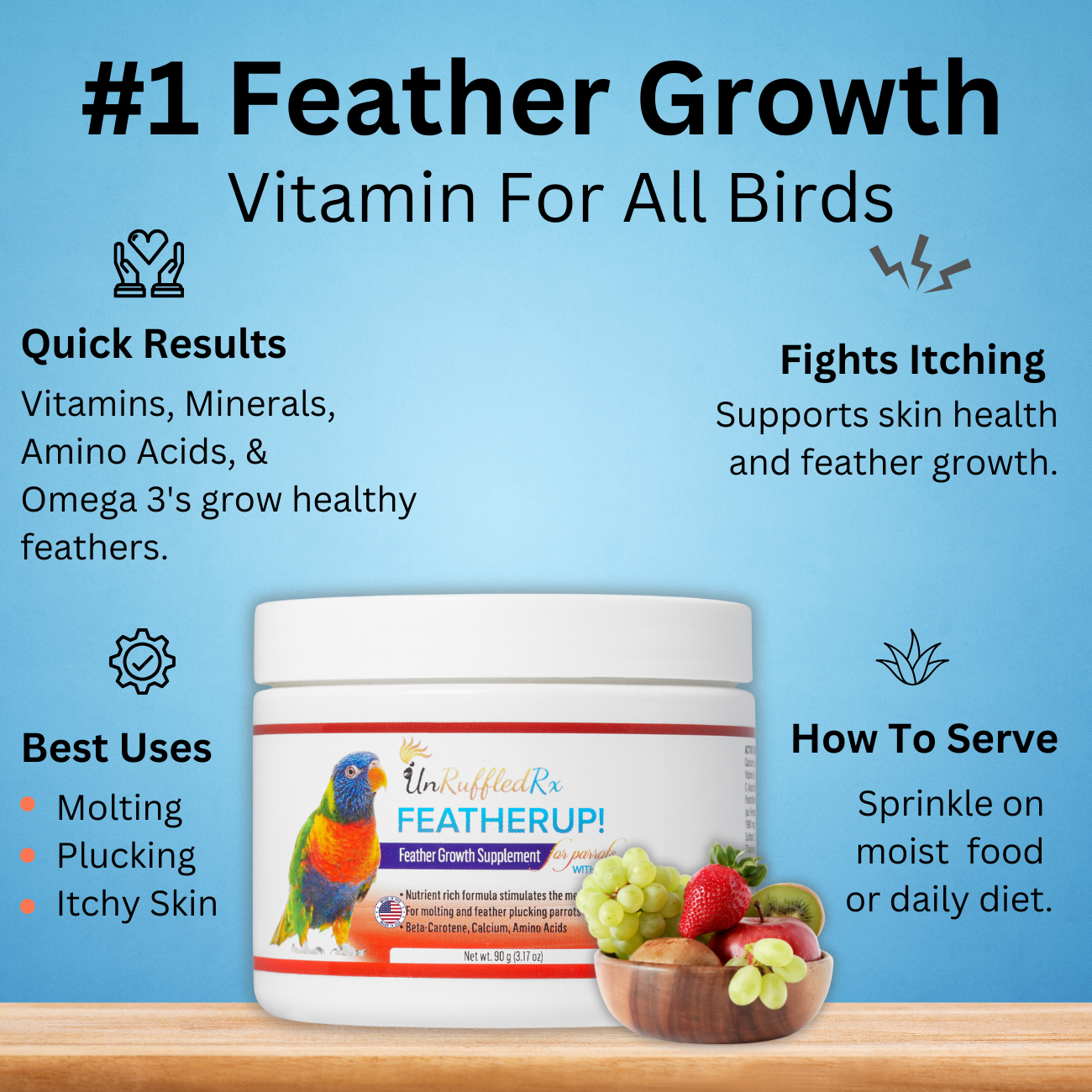Revised February 14, 2024
Table of Contents
When it comes to our avian companions, ensuring the well-being of a sick bird is paramount. Being vigilant about potential household hazards is crucial, but equally important is knowing how to create a bird hospital cage.
Common reasons for utilizing a bird hospital cage include:
- Flying into a window and sustaining a concussion
- Being attacked by a cat or dog
- Suffering from a broken wing or fractured leg due to a fall
- Experiencing conditions like egg binding or serious bacterial infections
- Breaking a blood feather
- And more...
Having a safe and warm bird hospital cage readily available can be lifesaving during emergencies. It's a must-have on my "Top 5 Must-Have Bird First Aid Supplies List!" for Peachy, Smokey, Timmy, and Kiwi.
In this crucial blog post, I'll address all your concerns about the importance of a bird hospital cage, how to construct one, ensuring your bird's comfort, and when to seek assistance from your avian vet. Let's delve into this essential information—it could be the difference between life and death for your feathered friend.
What is a hospital cage for birds?

Photo by Diane Burroughs, LCSW
A hospital cage for birds is a dedicated enclosure used to provide a safe and controlled environment for sick or injured birds to recover from various ailments or injuries.
A hospital cage for birds is like a special room where sick or injured feathered friends can rest and get better. It's designed to be cozy and safe, with easy ways for people to take care of the bird inside. These cages have things like low perches and easily accessible food bowls to make the bird comfortable while it heals. They need to be kept warm, at approximately 85-90F.
People use hospital cages for birds for lots of reasons. Sometimes a bird accidentally flies into a window and needs a quiet place to recover from a bump on the head. Other times, a bird might get hurt by a cat or a dog and needs a safe space away from other animals. If a bird breaks a wing or a leg, a hospital cage helps keep it still so it can heal properly. Birds can also get sick from things like infections or having trouble laying eggs, and a hospital cage gives them a calm place to get better without any distractions.
The best thing about a hospital cage is that it keeps the bird safe and comfortable while it gets better. It's like having a cozy little bird hospital right at home, where we can make sure our feathered friends get all the care they need to feel better soon.
How do you make a bird hospital cage?
A bird hospital cage doesn't have to be an expensive contraption that you store away just for emergencies. I've always used my clear bird carriers whenever I need to offer my birds supportive care. You just have to be careful about the materials, the size, and accessibility features.
Bird carriers are multi-purpose accessories. I use them for travel, supervised outdoor time, and to offer supportive care when my pets are sick.
I've always preferred to use clear bird carriers when I need to travel with my birds or offer them supportive care. There are various clear bird carriers on the market in assorted sizes. I like clear bird carriers because they allow me to observe my sick bird without disturbing it's rest.
Now, I'm not talking about flimsy, then plastic bird carriers. I'm referring to sturdy, well made clear bird carriers that offer ventilation and stainless steel bars so that you can attach food and water bowls, perches, and, if needed, a Snuggle Up Bird Cage Warmer.
One of my favorite styles is the Wingabago Bird Carrier for larger birds, like Peachy, my Moluccan Cockatoo.
However, this is admittedly a pricey and bulky item. I prefer to use the Caitec Perch and Go Bird Carrier for my African grey's and smaller birds. I really love both of these Styles because they're so easy to keep clean.
I find that this bird carrier is just the right size to allow for movement, of course, yet encourage the “3 R's” for supporting a sick or injured bird.
- Rest
- Relaxation
- Recovery
The other thing that I like about using the Caitec Perch and Go Bird Carrier as a bird hospital cage is that if my bird takes a turn for the worse, I can quickly pack him up in the car to get to the vet with minimal stress.
Both the Caitec and the Wingabo feature thick polycarbonate or other plastic material and stainless steel sides or doors to attach important accessories for your bird's comfort.
Got a long tailed Macaw? Get Caitec’s Macaw Carrier to help your large, long tailed bird recover. It has both front and rear doors so that your bird does not have to turn around to get in or out of the carrier. With a low perch height, your Macaw will be encouraged to rest in a Macaw friendly parrot hospital cage.
Since many pet birds already have a travel cage, it's an affordable way to offer your bird an ICU experience to promote a fast recovery. Really, the only thing that you need to do to convert your bird travel cage into a hospital cage is to lower the perch, ensure that the water and food bowls are easily accessible, and line the bottom with a soft, fluffy towel in case your bird is too weak to perch.
Once you prepare the hospital cage and place your bird inside it's very important to minimize any stressors that could distract your bird or cause stress. Think of the hospital cage as a safe nest cavity where your bird will feel safe enough to rest and recover.
Place the parrot hospital cage in a warm, quiet room away from household traffic. Don't place it in an area where your bird may experience drafts and keep it away from windows. Cover the sides at the hospital cage with a thick towel to create a darkened atmosphere and muffle sounds that might startle your bird.
What is the best thing to put on the bottom of a bird cage?
A lot of people ask, “what should I put in the bottom of my bird hospital cage?” As I mentioned above, I like to cover the bottom of the carrier with a fluffy towel. It's super easy to throw a soiled towel in the washer. But, I'm a big fan of using puppy pads and just tossing the mess in the trash. Plus, with puppy pads, you can easily examine your bird's droppings. A change in your bird's droppings, like color, frequency, volume, wetness or character of droppings may indicate a problem that requires immediate veterinary attention.
Just as important, a clear bird hospital cage is easier to keep clean. You’ll also want to ensure that your bird is as comfortable as possible remember the 3 R's? Rest. Relaxation. And, Recovery.
If your bird is strong enough, place an appropriate sized perch close to the bottom at the carrier. That way, if your bird falls off of it, it is less likely to get injured. Also, make sure that the food and water bowls are lowered and very easy to get to. A weak bird has a tendency to refuse to eat.
How do you take care of a sick bird?
A sick bird may stop eating and drinking, which can lead to starvation. After you've taken your sick bird to the vet, place it in a hospital cage to allow it to heal.
Sick birds are not very resilient, and dehydration is a significant risk due to diarrhea or regurgitation. Monitoring your bird's weight with a scale is crucial; a 10% drop in weight can happen in just a day or two if they aren't eating or drinking. Early detection of weight loss allows for timely intervention.
You don't need an expensive scale with a perch; training your bird to stand on a platform is simple. Monitoring your bird's weight regularly helps track its health.
If your bird refuses to drink, consider stabilizing it with a homemade electrolyte mix. Avoid over-the-counter electrolyte drinks due to their high sugar content. Instead, make your own with a simple recipe.
BIRD ELECTROLYTE SUPPORT
Ingredients:
2 C. fresh water
1 teaspoon of honey or Karo syrup
1/2 teaspoon aluminum-free baking soda (Bob's Red Mill Baking Soda)
1/2 teaspoon table salt.
Instructions:
Mix well. Use a dropper, a curved teaspoon, or a creamer pitcher to get your bird to drink.
Getting your birds electrolytes back in balance will help support your bird toward faster recovery. Please remember, that anytime a bird is warmed up and healing at the same time, it must have access to fresh, clean water at all times. Heat, of course, causes dehydration.
How do you keep a sick bird warm?
Helping your bird get better quickly means keeping it warm. Birds, just like us, can feel cold when they're sick. But here's the thing: birds are experts at hiding when they're not feeling well. It's like they're programmed to act normal even when they're sick, which can make it hard to tell if something's wrong until it's too late.
That's why being proactive and keeping your bird warm is so important. Even if your bird seems okay, giving it a cozy place to rest can make a big difference in its recovery. Think of it like giving your bird a warm hug—it helps them feel better faster. So, make sure their cage is nice and toasty, and you'll be helping them on the road to recovery in no time.
The ideal temperature for a sick bird's environment is around 75 to 80 degrees Fahrenheit. This temperature range helps keep them warm without making them become dehydrated.
There are a few ways to keep a sick bird warm. You could try using a light bulb aimed at the perch area or a heating pad beneath the carrier. However, controlling the heat with these methods can be tricky, and too much heat could lead to dehydration.
A better option is to invest in a Snuggle Up Bird Cage Warmer. These devices attach easily to the cage bars, ensuring your bird can't nibble at the electrical cord. They come with thermostatic controls, providing just the right amount of heat to keep your bird cozy. It's available in two sizes to suit different cages.
I became a firm believer in the importance of the Snuggle Up Bird Cage Warmer when my Moluccan Cockatoo, Peachy, fell ill with Mega-bacteria in 2013. This device truly seemed to save his life. I highly recommend adding it to your bird first aid kit.
When To Call A Vet
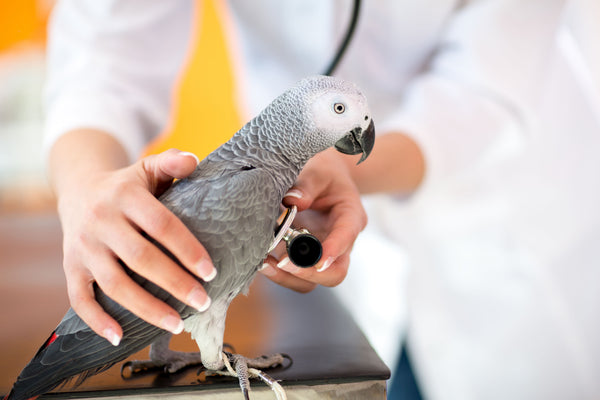
When caring for a sick bird it is really important to know which symptoms need immediate emergency treatment and which respond well to home-based supportive care.
It never hurts to call your avian vet office and talk with a vet tech. You'll probably get some great advice and also the clinic will be apprised of your situation and be more apt to get you in for immediate treatment if necessary. Make sure that you follow your avian vet's advice to the best of your ability.
How do you disinfect a bird hospital cage?
Disinfecting a bird hospital cage is super important to keep your feathered friend safe and healthy, especially when they're sick. Bacteria and fungus can grow fast in a cage, and a sick bird might not be able to fight off those germs like a healthy bird can.
Now, birds are really sensitive to chemicals, so you have to be careful about what you use to clean their cage. Common household cleaners can actually be harmful to them. That's why it's a good idea to make your own cleaning solution using hydrogen peroxide and water. It's safe for birds and does a great job at killing germs.
Here's how you can do it: mix one part hydrogen peroxide with three parts water in a spray bottle. After each use of the hospital cage, give it a good spray with this solution to disinfect it. It's a quick and easy way to keep the cage clean and germ-free.
Another thing you can do is invest in a cover for the cage when it is not in use. This will help keep dust and dirt out when the cage isn't in use, so it's ready to go at a moment's notice. Keeping the cage clean and ready for your sick bird is a big part of taking good care of them.
A Few Words Of Comfort
Finally, remember that your bird Is probably experiencing some emotional stress. Gentle words of encouragement will go a long way toward calming your bird down.
Birds grow very attached to their owners and will appreciate the calming attention. Talk in a low, comforting voice to your feathered friend, and assure your pet that he/she will be alright.
MUST HAVE Essential Conditions for Bird Recovery
- Quiet environment
- Clean hospital cage that encourages rest
- Paper lining or bedding that's easy to change and allows you to observe droppings
- Low perch, if necessary
- Supplemental heat from heating pads, infrared heaters or a heated lamp
- Fresh, clean water
- Nutritional and Electrolyte Supplements
- Thermometer to monitor cage temperature
- Cage cover or towel to quiet outside activity and wipe up messes
- Non Toxic antibacterial cleaning solution like Pet Focus for cleaning and disinfecting
In conclusion, I strongly advise that you have a clean bird hospital cage available at all times. Create a bird first aid kid so that when the inevitable bird emergencies happen - - you are prepared.
Related Posts:
How To Prepare A Bird Hospital Cage
Stabilizing a Sick Bird And When To See A Vet
Diane Burroughs, LCSW is a licensed psychotherapist trained in ABA therapy techniques. She specializes in avian anxiety disorders and is certified in Nutrition For Mental Health. Diane has written a number of bird behavior books and she offers behavior consultations. She's developed a range of UnRuffledRx Science-backed Parrot Wellness Supplies.
Diane's products have been featured in the Journal of Avian Medicine and Surgery and at Exoticscon, a conference for exotic pet veterinarians. Her bird collars & supplements are stocked in avian vet clinics and bird stores throughout the US. With over 30 years in the field of behavior, Diane has created thousands of successful individualized behavior plans that help pets thrive.
TAGS: #BirdHospitalCage #StabilizingASickBird
SHARING IS



